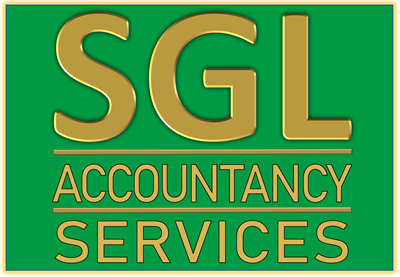
Trivial Benefits UK: A Guide for Employers and Directors
Introduction
Trivial benefits allow employers in the UK to provide small, non-cash perks to employees and directors without incurring tax or National Insurance liabilities, provided they meet specific HMRC conditions. Understanding these rules is key to offering staff incentives efficiently.
Key Conditions: What Qualifies as a Trivial Benefit?
The Criteria
For a benefit to qualify as trivial and thus be tax-free, it must meet all of the following conditions:
- It is not cash or a cash voucher (vouchers that can be exchanged for cash).
- It is not provided as a reward for work or performance, or in anticipation of work or performance.
- It is not part of a contractual obligation (e.g., something the employee is contractually entitled to).
- The cost of providing the benefit does not exceed £50 per individual benefit.
If any one of these conditions is not met, the benefit will be fully taxable, not just the amount over £50.
Examples of Acceptable Trivial Benefits:
Here are some common examples of benefits that typically qualify as trivial:
- Birthday gifts (e.g., chocolates, flowers, wine)
- Gift vouchers (as long as they cannot be exchanged for cash)
- Seasonal gifts (e.g., Christmas hampers, a bottle of wine at Easter)
- Small team outings (e.g., a coffee or lunch for a specific occasion, provided it’s not a regular occurrence)
- Small entertainment expenses (e.g., cinema tickets for a specific event)
What Does NOT Qualify as a Trivial Benefit?
Certain expenses or benefits will not qualify as trivial benefits and will typically be taxable:
- A family meal out for an employee – this is considered a personal expense, not a business-related benefit.
- Cash bonuses – trivial benefits must never be cash or cash equivalents.
- Regular perks – if an employer provides a monthly meal allowance or a weekly fruit basket as an ongoing benefit, it is not a trivial benefit as it is regular.
- Work-related rewards – if a benefit is given explicitly as a reward for performance (e.g., a bonus for hitting sales targets), it is taxable.
The Daily Lunch Misconception
Some employers mistakenly believe that paying for an employee’s lunch every day qualifies as a trivial benefit. However, this is not the case:
- Regular meals provided by an employer are generally considered a taxable benefit in kind for the employee.
- HMRC views daily lunches as part of an employee’s normal living costs, not a one-off, infrequent perk.
- While occasional meals (e.g., a team lunch for a special occasion, an annual Christmas meal) can qualify as a trivial benefit (or a staff entertaining expense under different rules), daily or regular meals do not.
Director Limits on Trivial Benefits
For directors of close companies (companies with five or fewer shareholders), there is an important annual cap on trivial benefits:
- Directors can receive multiple trivial benefits throughout the tax year, but the total value must not exceed £300 per tax year.
- If a director provides trivial benefits to family members (e.g., spouse, children) who are also employees of the same company, these benefits also count towards the director's £300 annual limit.
- It's crucial to remember that employees who are not directors of close companies do not have an annual cap on the number of trivial benefits they can receive, only the £50 per individual benefit limit. This £300 restriction applies solely to directors of close companies.
For more detailed information, always refer to the official HMRC guidance on Trivial Benefits.
Examples of Trivial Benefits in Practice
Example 1: Birthday Gift
An employer buys an employee a £40 bottle of wine for their birthday. Since it’s under £50, not cash, and not linked to work performance, it qualifies as a trivial benefit and is tax-free.
Example 2: Team Coffee Run
An employer buys coffee for the entire team after a successful project completion. Since it’s not a regular occurrence and meets the other conditions, it qualifies as a trivial benefit.
Example 3: Christmas Hamper
An employer gives each employee a £45 Christmas hamper. Since it’s under £50 per person and not linked to work performance, it qualifies as a tax-free trivial benefit.
Example 4: Daily Lunch (Incorrect Application)
An employer pays for an employee’s lunch every day. Since this is regular and expected as part of the employment arrangement, it does not qualify as a trivial benefit and is therefore taxable.
Common Mistakes to Avoid with Trivial Benefits
Mistake 1: Paying for Daily Lunches
Employers cannot provide daily or regular meals as a trivial benefit – this is a taxable perk for the employee, and the employer may need to report it to HMRC.
Mistake 2: Exceeding the £50 Limit
If the cost of a single benefit exceeds £50, the entire value of the benefit becomes fully taxable, not just the amount above £50. For instance, a £51 gift is wholly taxable.
Mistake 3: Providing Cash or Cash Vouchers
Trivial benefits must not be cash or vouchers that are easily exchangeable for cash. Only non-cash vouchers (e.g., for specific shops or services that cannot be converted to cash) are permissible.
Mistake 4: Linking Benefits to Work Performance
If a benefit is given as a reward for performance (e.g., "well done for hitting your sales target, here's a gift"), it is considered a taxable bonus or benefit and does not qualify as trivial.
Note: This information is a general guide to Trivial Benefit rules in the UK. Tax regulations are complex and can change. Always seek professional accounting or tax advice tailored to your specific circumstances to ensure full compliance with HMRC guidelines.